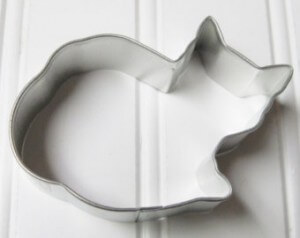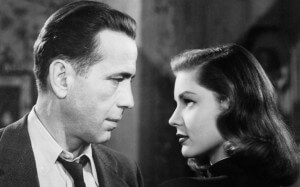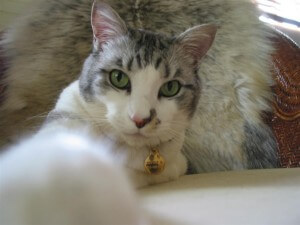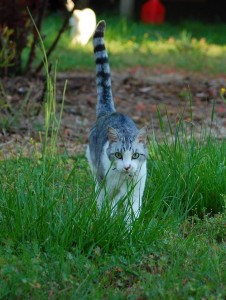I’m not sure where to start this story. Normally, that’s one of my writerly strong suits. So let me start by saying, I am hoping this blog post leads me to a new owner for Molly, an old white cat who lives across the street. It’s very important to me that I find a home for Molly. Here’s why.
When I moved into this house nine years ago, my neighbor across the street was a vibrant woman. She was single, I guessed she was about forty. She had a white cat, Molly, that she hung out with on her porch. She had a big truck she took to the barn every day, always coming home in her half-chaps and breeches. Perhaps three years later, her horse passed away. He was the equine love of her life, and she did not replace him. I could tell she was slowing down – slowing down in a way that didn’t seem quite right – but she still had Molly, her constant companion.
Then, a few years ago, an ambulance showed up at her house and took her to the hospital. A couple of days later, Evan and I were outside doing lawn work. It was blazingly hot, in the middle of summer. We smelled smoke, and even though it was the wrong season for it, I thought someone was burning leaves. Then I saw flames emerging from under the eaves of my neighbor’s house. The fire was so intense I couldn’t even get close to the house. Both her car and truck were there, but I thought it was likely she was still in the hospital. What I was worried most about was Molly. I called 911 and prayed Molly had the sense to flee out the back kitty door.
Luckily, Molly was indeed smart enough to save herself.
The fire was destructive. However, because firefighters got there so quickly, they were able to save the house. That said, saving the house took a very, very, very long time. My neighbor was a renter, and her landlord was in no hurry to get renovations underway. I presume my neighbor stayed with her mother during this time. I also presume Molly wasn’t welcome at her mother’s house.
I presume these things in part because every single day my neighbor came over to the burned out house, gave Molly food and and water, and then sat with her cat, keeping her company.
For hours. Every day. For months.
Somewhere in that stretch of time, I saw an animal control officer poking around my neighbor’s house with a live animal trap. I told the officer that she absolutely could not trap Molly and take her away. I told her about my neighbor’s ill health, the fact her house burned, but that every day she visited Molly, and that she needed that cat more than anybody has ever needed a cat. I also got the officer’s name and number for my neighbor.
The next day, when my neighbor arrived, I walked over to tell her about the appearance of the animal control officer. I’ll never forget the horror on her face. She said, “Oh no. That cat is my whole life.” And I said, “I know she is.”
My neighbor called animal control, got that sorted out, and eventually she was able to move back in. Molly and my neighbor were fully reunited.
But her health continued to decline. Ambulances came and went. Many months went by. The ambulances were replaced by hospice workers. Eventually, my neighbor was transferred out of her home.
Last Thursday afternoon, I suddenly realized she had passed. I don’t know how I knew, I just did. It was, in part, because nobody at all had been to the house for some time. At least two weeks. The lawn had grown long. Most importantly, I realized I hadn’t seen Molly. Not for a long time. I was filled with relief. I had anticipated, for many years, that when my neighbor passed away her family would fail to take care of Molly. I had anticipated that I would need to find her a home. This had always bothered me. That cat was my neighbor’s world. Why wouldn’t her family seek to do right by the creature she loved most and who loved her most?
That evening, I looked out across the street and saw, as I had so many times before, a white cat on my neighbor’s porch. It was Molly.
I ran over to her, bringing food and water. She’d lost weight and was hungry, but not starving. Her ears were chewed up, possibly by one of the ever present strays. In short, she’d declined, but not as much as you’d expect if she’d been completely abandoned. Still, seeing her looking rough and unloved was profoundly sad.
I was reminded of a scene in the movie 25th Hour where a man, played by Phillip Seymour Hoffman, adopts his friend’s dog, Doyle. (His friend is off to do several years of prison.) PSH is honored to adopt Doyle, because of his love and respect for his friend is transferred into love and respect for the dog. I know some people do not view animals the way I do, or the way my neighbor did, but even if you don’t, shouldn’t you adopt your loved ones view on the matter, just out of respect for the dead? I hope that, if I still have animals when I die, that there will be someone who wants them. Or someone who cares enough to find somebody who wants them.
I care enough to find somebody who wants Molly.
On Friday, I learned that another neighbor is putting food out for Molly on her porch. We agreed that the adjustment to being an outdoor cat has been hard on Molly. Although Molly hung out on the porch with her owner, she primarily lived inside. Molly is older, at least ten. Her vision and hearing aren’t as good as they once were. She is a sitting duck for the aggressive strays around here. The woman who is feeding her can’t have an indoor cat, but also believes that would be the best thing for Molly.
Her whole life, Molly has been an only cat. I would happily adopt her, but I don’t necessarily think that the chaotic zoo I have going on here would be an ideal situation for her. I’d really like to find the best thing for her. I am happy to drive – even a long distance – to deliver her to her new home. If that home is currently cat-less, I am happy to provide a full kit to go with her (carrier/litter box/food/etc.)
Normally, I don’t ask that people share my blog posts, but in this case, please do. I’m really hoping this story will help me find a home for Molly.





